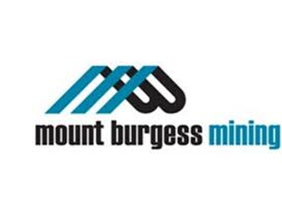Highlights
UK Foreign Secretary warns Iran against escalating conflict in Strait of Hormuz
Iranian lawmakers back closure of key oil and gas shipping route
Energy markets react to geopolitical uncertainty in a major FTSE 100 sector
The energy sector, particularly companies listed on the FTSE 100, remains under intense observation following developments in the Middle East. A key chokepoint for global oil and gas supply, the Strait of Hormuz, is at the centre of heightened geopolitical risk. Tensions escalated after reports of US strikes on Iranian nuclear facilities, prompting reactions from the Iranian parliament and military leadership.
UK Diplomatic Intervention in Strategic Waterway Crisis
UK Foreign Secretary David Lammy addressed the growing security crisis, cautioning Iranian authorities against actions that could destabilise the region. Lammy confirmed that he conveyed a stern message to his Iranian counterpart regarding the risks of closing the Strait of Hormuz. This maritime corridor remains crucial for international energy transportation.
The Strait of Hormuz, at its narrowest, connects major Gulf oil producers to global markets. Lammy noted that any blockade would be a “catastrophic mistake” and highlighted ongoing diplomatic efforts to discourage further escalation from Tehran. The Supreme National Security Council of Iran is reportedly the final authority on whether to proceed with a full closure.
Market Reaction Amid Oil Supply Uncertainty
Energy prices experienced a noticeable jump following parliamentary approval in Iran to move forward with the closure, although volatility eased slightly later. This development has direct implications for listed companies involved in oil exploration, production, and distribution.
Companies such as BP plc (LON:BP) and Shell plc (LON:SHEL), both key players on the FTSE 100, are closely tied to global crude flows through the Gulf. Any disruption to traffic through the Strait may have operational and logistical impacts on their supply chains. Energy-focused firms continue to track developments as regional allies voice concern over the risks of further destabilisation.
Geopolitical Concerns Impacting Broader Commodities Sector
Beyond crude oil, the shipping lane is vital for liquefied natural gas transport, particularly from countries reliant on Gulf routes. With tensions mounting, energy and commodity markets are reacting to the perceived fragility of supply lines. The situation remains fluid, and statements from regional players and military authorities are influencing short-term sentiment in the broader commodities sector.
Security and Strategic Risk for UK-Listed Energy Majors
Amid concerns over future access to strategic routes, UK-based defence and energy-related companies may experience indirect impacts. Companies involved in infrastructure and logistics security, such as BAE Systems plc (LON:BA), are also being monitored due to the implications of rising defence budgets in response to regional instability.
Although Iran’s Supreme National Security Council has yet to issue a final directive, its potential decision holds global significance. For now, UK diplomatic channels remain active in discouraging further escalation, aiming to preserve the integrity of a corridor central to both economic and energy security worldwide.





